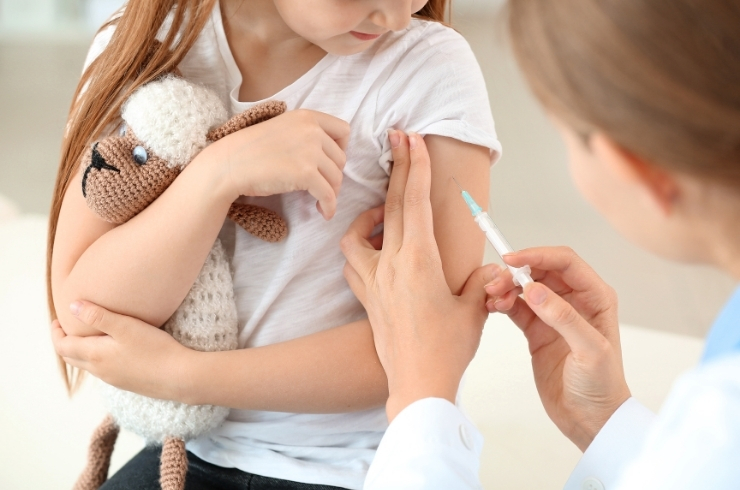Pediatrics

Child Vaccination & Immunization
Vaccination is a vital step in protecting children from life-threatening diseases such as measles, polio, hepatitis, tetanus, and more. A timely immunization schedule strengthens the child’s immune system and prevents outbreaks. Pediatricians follow national and WHO-approved vaccine protocols, ensuring your child receives all mandatory and optional vaccines. From birth to adolescence, each shot plays a role in building long-term immunity. Side effects, if any, are mild and temporary. Parents are educated on vaccine benefits, intervals, and post-care tips. Regular immunization not only safeguards your child but also helps create a healthier community through herd immunity. Early protection is the best prevention.
Newborn & Child Growth Monitoring
Regular growth monitoring is essential for tracking a child’s physical, mental, and emotional development. Pediatricians assess key parameters like weight, height, head circumference, and milestone achievement at each visit. Early detection of delays or abnormalities enables timely intervention. For newborns, evaluations include feeding patterns, reflexes, jaundice screening, and vaccination tracking. As the child grows, behavioral observations and developmental screenings are added. Parents receive guidance on nutrition, sleep, and hygiene practices, ensuring optimal development. Growth charts and percentile tracking help compare individual progress with age-based norms. Consistent monitoring ensures your child thrives and reaches every milestone confidently and on time.


Treatment for Childhood Infections (Cold, Cough, Pneumonia)
Children are highly susceptible to infections such as common cold, flu, ear infections, tonsillitis, and pneumonia due to developing immune systems. Prompt diagnosis and treatment help avoid complications and speed up recovery. Pediatricians assess symptoms through physical exams and may use diagnostic tests like chest X-rays or blood tests if needed. Treatments include safe medications, hydration advice, and rest plans, tailored to the child’s age and severity. Preventive measures like hand hygiene, vaccinations, and nutritious diets are emphasized. Parents are educated on red-flag signs and home care tips. Early and effective management ensures quick recovery and reduces absenteeism from school.
Nutritional & Developmental Assessment
Nutrition directly impacts a child’s physical growth, brain development, and immunity. A nutritional assessment includes tracking calorie intake, food preferences, deficiencies, and growth trends. Developmental assessments evaluate speech, social behavior, motor skills, and cognitive milestones. Pediatricians use age-appropriate tools and checklists to identify delays or concerns. If needed, referrals to dietitians, speech therapists, or occupational therapists are made. Parents are counseled on age-specific dietary plans, portion sizes, and healthy habits. Regular monitoring helps detect conditions like anemia, obesity, or malnutrition early. With timely support, children can overcome delays and build strong foundations for learning, behavior, and lifelong health.


Pediatric Asthma & Allergy Management
Asthma and allergies are increasingly common in children, often triggered by dust, pollen, food, smoke, or weather changes. Symptoms may include wheezing, coughing, breathlessness, skin rashes, or digestive issues. Pediatricians perform allergy testing and lung function tests to confirm diagnosis. Treatment includes inhalers, antihistamines, nebulization, and long-term preventive medications. Parents are educated on trigger avoidance, emergency response, and medication adherence. Regular follow-ups are essential to adjust doses and monitor progress. Lifestyle guidance, breathing exercises, and an asthma action plan improve daily control. With comprehensive management, children with asthma and allergies can lead active, healthy, and unrestricted lives.
